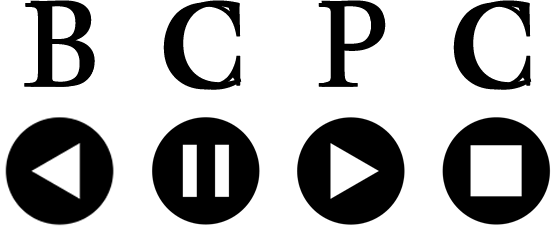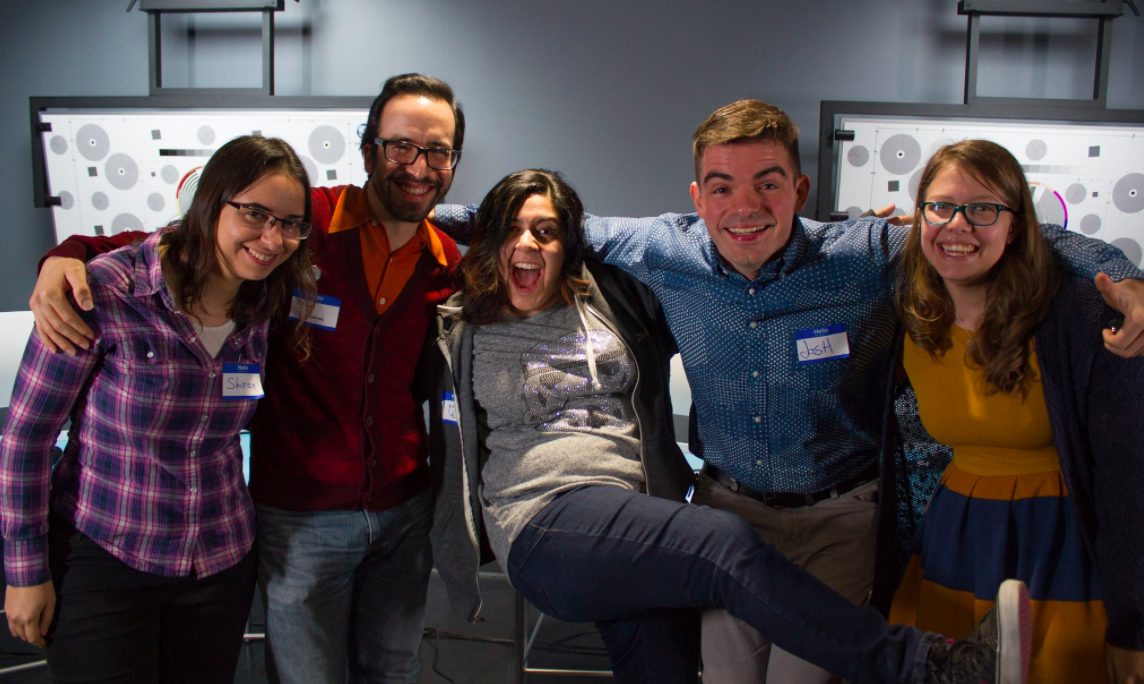BCPC Member Highlight: Quincy Ledbetter ( New York City)
/Blue Collar Post Collective has members all over the world, in all aspects of post. Every two weeks we get to know someone new.
Meet filmmaker Quincy Ledbetter of #NYC. Quincy has made documentaries about ageism and climate change, Islamaphobia, suicide amongs LGBTQ youth and tiny homes - the list goes on and so does the list of his roles. Check out his journey from artist on-the-side, to being the current Video Director & Senior Video Editor at HuffPost.
Give a brief summary of your trajectory into film in New York City.
This is a very long story, but I'll try to keep it as concise as possible.
I was living in Northern Virginia working normal 9-to-5 jobs and doing photography and music on the side trying to pursue my dreams full time. I started to feel like I had peaked in the DC Metro area as a musician and I realized that I couldn't go much further if I stayed in my hometown. The problem was I was too afraid to leave.
One day I was at work and thought about the place where I was the most afraid to live and that was New York City, so I decided that I would move there at the top of the next year. 6 months later I was gone.
As soon as I moved up here things happened really fast. I found myself surrounded by people who didn't see my aspirations as a pipe dream. It made everything seem possible. Before you know it I had bought a DSLR camera and started shooting video as well as photos. It wasn't long before I started writing, directing, editing, scoring, producing, and color correcting my own films.
What do you love about your field [let me know your preferred title]?
I prefer to to call myself a "filmmaker" because it's very broad. I do so much that it feels self-aggrandizing to list everything every time I'm asked. So, just saying I'm a "filmmaker" makes conversation easier.
What I love the most about my field is that I can exercise all of my passions: art, music, photography, film. Every project I do is an opportunity to make different types of artistic contributions and to work with people who share the same passions and learn from them.
Perhaps most of all, however, making films is the best way that I know to communicate with people. I'm more articulate through my art than in typical social interactions.
Okay, but be self aggrandizing for a minute. Let’s hear the list.
Writer, director, director of photography, editor, music score/composition, color correction, photography, and some light special effects.
Where did you start learning your skills, how did you manage to get good at all these things, did you master one thing at a time, or learn everything as you needed to use that skill? Do you encourage others to be jack-of-all-trades?
I started learning all of these skills at once mainly because of how little I knew about the process of filmmaking. I had always thought that my favorite directors were doing all of these thing on their own. For example, I thought that Steven Spielberg was operating the camera for all of his films, then taking the film to the edit room and editing it himself; which is weird because I knew that there were people who had these jobs, but I just wasn't educated on the craft enough to know that they actually hired people to do those things. So, when I decided I wanted to make films, I assumed I had to learn how to do all of it.
Also, my father's advice to learn to do everything really motivated my aspiration to do just that.
I learned all of these things by just, sort of, doing them. I watched a LOT of YouTube videos. If you type, "how to ______" in YouTube, you'll likely find a video teaching you how to do that thing. "How to Use Premiere Pro". Boom. There's a 20 minute crash course. You can even get micro with it. I learned almost everything by watching YouTube videos and then trying it on my own, failing at it, then trying again.
It's not all that important for filmmakers to learn how to do EVERYTHING, but I do feel like it's important to be able to speak the same language as the people carrying out those tasks.
How would you describe your approach? What is it important for emerging filmmakers to know?
The first step in my approach is to get over the imposter syndrome I feel with every opportunity that comes my way.
Next, I get down to the business of over-preparing for every possible scenario that I can think of. Filmmaking and being on set can be so unpredictable, so I make sure I have a back up plan for everything. My wife, Yuki Maekawa-Ledbetter, produces all of my best work and she is essential in keeping me focused, grounded, and prepared to take on challenges.
Lastly, I show up; meaning, whatever drama I'm going through in my life or in my head doesn't come with me to set. Very early in my career, I got an opportunity to work with some really great people on an exciting project, but I brought my personal drama and hardship to the set, and it almost ruined the entire project. NEVER AGAIN.
There's a lot that is important for emerging filmmakers to know but, above all, I would say it's to be a good collaborator who also knows how to do everyone else's job. You can't go very far doing everything on your own, so you have to develop as someone that other people want to work with; however, you also don't want to have to wait for others to bring your projects across the finish line.
I meet so many filmmakers who cannot get projects done because they're waiting on someone to find time to do this or that. That drives me insane. As soon as someone tells me they don't have time to finish something they originally committed to doing, I pick it up and do it myself. Having that type of ability with every aspect of the craft is empowering and it's the only reason I've been able to get so much done.
What advice would you give yourself if you were just starting out again?
Show up or get shown up.
What and where is your favorite place to unwind after a long day? How do you self-care?
Hanging out with my wife, on the couch, watching a movie or "Rick & Morty" is my happy place. I'm usually recharged after doing that for a couple of hours.
What is the the one thing outside of your work that you geek out about the most?
This may, in fact, be related to my work, but really, really, REALLY good film and television really gasses me up. I can talk about it with anyone for hours if they'll let me.
What is the best advice that has ever been given to you?
When I was 17 years old my dad told me, "If you're going to do something, then learn to do everything involved in it. That way you don't have to depend on anyone to do what you want to do."
Again, collaboration is essential in filmmaking, but I cannot stress how empowering it is to be able to do for yourself and speak the same language of the people who are doing things for you.
What achievement are you most proud of?
Becoming someone that my wife would want to spend the rest of her life with.
If you won the lottery today, and never needed to work again, how would you spend the rest of your life?
That's easy. I'd make my films and help other people get their projects off the ground.
What are people always surprised to learn about you?
People are always amazed at how effectively I utilize my time. I know that's a boring answer, but it's the truth. When I tell people that I wrote two screenplays and shot multiple short films and art projects while working 11-hour days in an office, their jaws drop.
If you could time-travel, where and when would you go?
This is going to sound corny, but I'm a firm believer in the Butterfly Effect, so I wouldn't want to go anywhere because there's too much of a risk that I'd change something that could destroy someone's life.
What inspired you to be a member of the BCPC and how long have you been with us?
I've served as a mentor for the BCPC earlier this summer, for their Field-Day event in New York, it was so fulfilling.
What inspired you to volunteer and what would you say to those considering volunteering?
I'm very passionate about offering any mentorship or advice to people coming up because I know how starved I was for that type of guidance. There is no greater feeling than sharing your story and someone telling you that it was inspiring to them in some way.












